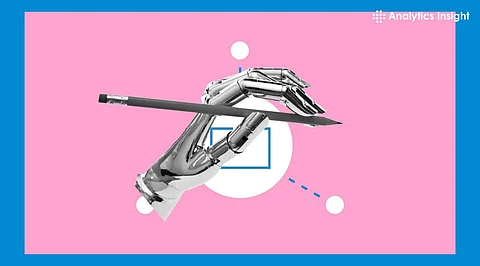
- Insights
- Cryptocurrencies
- Stocks
- White Papers
- Industry
- Geography
- Insights
- Cryptocurrencies
- Stocks
- White Papers
- Industry
- Geography


Artificial intelligence (AI) is one of the most rapidly evolving and influential fields of technology in the 21st century. AI applications are transforming various industries, such as healthcare, education, finance, cybersecurity, and more. As a result, the demand for AI professionals is soaring, creating new and exciting career opportunities for data scientists, engineers, researchers, and developers.
1. Machine Learning Engineer: A machine learning engineer is responsible for designing, developing, and deploying machine learning systems and algorithms that can learn from data and perform tasks such as prediction, classification, recommendation, and natural language processing. A machine learning engineer typically has a strong background in computer science, mathematics, statistics, and programming languages such as Python, R, Java, or C++.
2. Data Scientist: A data scientist is responsible for collecting, analyzing, and interpreting large and complex datasets using various tools and techniques such as data mining, data visualization, statistical modeling, and machine learning. A data scientist typically has a strong background in mathematics, statistics, computer science, and programming languages such as Python, R, SQL, or SAS, according to Glassdoor.
3. AI Research Scientist: An AI research scientist is responsible for conducting original and innovative research in various domains of AI, such as computer vision, natural language processing, speech recognition, deep learning, reinforcement learning, and explainable AI. An AI research scientist typically has a PhD or a master's degree in computer science, artificial intelligence, machine learning, or a related field, and has published papers in reputable journals or conferences.
4. AI Ethics Consultant: An AI ethics consultant is responsible for ensuring that the development and deployment of AI systems are aligned with ethical principles and values, such as fairness, accountability, transparency, and privacy. An AI ethics consultant typically has a background in philosophy, law, sociology, psychology, or a related field, and knows AI technologies and their social implications.
5. Robotics Engineer: A robotics engineer is responsible for designing, building, testing, and maintaining robots and robotic systems that can perform various tasks, such as manufacturing, exploration, entertainment, and healthcare. A robotics engineer typically has a background in mechanical engineering, electrical engineering, computer engineering, or a related field, and knows robotics hardware, software, and algorithms.
6. AI Product Manager: An AI product manager is responsible for managing the entire lifecycle of an AI product, from ideation to development, to launch, to evaluation. An AI product manager typically has a background in business, marketing, or a related field, and knows AI technologies and their market potential.
7. AI Solutions Architect: An AI solutions architect is responsible for designing, developing, and implementing AI solutions that meet the specific needs and requirements of clients or organizations. AI solutions architect typically has a background in computer science, software engineering, or a related field, and knows AI technologies and their integration with existing systems and platforms.
8. Software Engineer: A software engineer is responsible for creating, testing, and maintaining software applications that use AI technologies, such as machine learning, natural language processing, computer vision, or speech recognition. A software engineer typically has a background in computer science, software engineering, or a related field, and knows programming languages such as Python, Java, C++, or C#.
9. Data Analyst: A data analyst is responsible for extracting, cleaning, and transforming data from various sources, and providing insights and recommendations based on data analysis. A data analyst typically has a background in mathematics, statistics, computer science, or a related field, and knows data analysis tools and techniques, such as Excel, SQL, Tableau, or Power BI.
10. Computer Vision Engineer: A computer vision engineer is responsible for developing and applying computer vision algorithms and techniques that can enable computers to understand and process visual information, such as images, videos, or facial recognition. A computer vision engineer typically has a background in computer science, computer engineering, or a related field, and knows computer vision libraries and frameworks, such as OpenCV, TensorFlow, or PyTorch.
